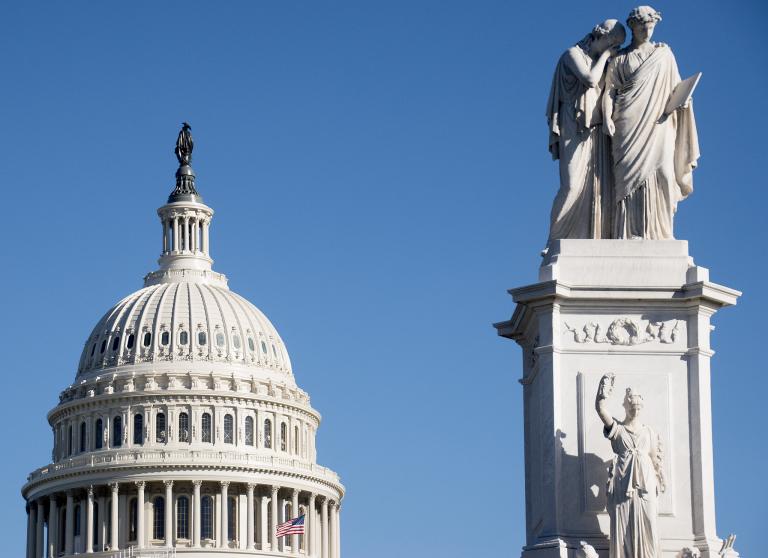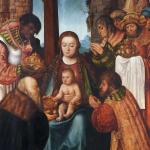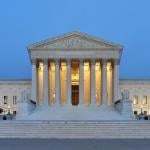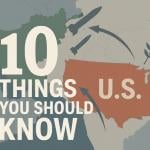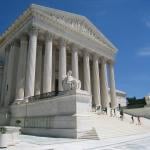We now have a divided government (shut down though it be), as Democrats took power in the House of Representatives yesterday. But that is only one of the divisions shaping up for 2019.
Divided Government
Republicans still hold the Senate and the Presidency, but the new Democratic House will likely thwart their agendas and bedevil President Trump with ever more investigations (of his business practices; of Trump University; of his treatment of women; of whether he is violating the emolument clause; etc., etc.).
Republicans too are divided. Former presidential nominee and newly-minted senator Mitt Romney (R-Utah) published an op-ed that was extremely critical of President Trump, praising some of his policies while condemning his failures of moral leadership. This seems to herald a Romney candidacy in the presidential primaries.
Meanwhile, President Trump is taking flack from the opposite direction, as some of his most ardent supporters are criticizing him for not going far enough in implementing the agenda he campaigned on. Ann “In-Trump-We-Trust” Coulter says that if he does not get his wall built, which seems increasingly unlikely especially given the Democratic House, “Trump will just have been a joke presidency who scammed the American people, amused the populists for a while, but he’ll have no legacy whatsoever.”
Then again, Democrats are also divided. This was evident as soon as the 116th Congress began its proceedings. Nancy Pelosi was elected Speaker of the House (third in the line of succession to the presidency after the Vice President), but a dozen Democrats voted against her. The second item of business was a normally routine vote on House rules, but socialist Alexandria Ocasio-Cortez, the newly-elected Congresswoman from New York, vowed to oppose the pay-as-you-go-provision, the easily-waived rule written into law that new appropriations must be funded by funding cuts in some other program. The new class of Democrats, many of whom occupy the party’s left-most wing, are making other demands, including a special committee to draw up the “Green New Deal” (more on that later), that are opposed by the House leadership.
Divided Culture
In 2019, the number of Baby Boomers (Americans born between 1946 and 1964) will be exceeded by the number of Millennials (born between 1981 and 1996). The end of the dominance of us Baby Boomers, who did so much to wreck American culture, is a good thing. The question remains, though, whether the Millennials–who tend to be far more progressive politically–will be up to the task of putting the culture back together.
Also in 2019, the number of “Nones” (Americans who profess no religious affiliation), who already exceed the number of Catholics and Mainline Protestants, might surpass the number of evangelicals. (There is a little bit of fake or at least misleading news in that report. Currently, the percentage of Nones is twenty-something percent, depending on the survey. If you add Catholics, Mainline Protestants, and evangelicals together–even if you don’t consider that most of the nones have their own private and sometimes Christian-leaning religious beliefs–America is still a highly-religious country.)
Divided World
As the United States, whether for good reasons or for bad, pulls back from international entanglements, China is working to fill the vacuum. Now that the United States has pulled out of the Trans Pacific Partnership, designed to counter China’s economic influence, China is setting up its own trade deals in Asia. The still-Communist country is also projecting its military power in the Pacific, building spheres of influence with foreign aid, and peeling away long-time allies of the United States. China is also bolstering its international prestige with stunts like an unmanned landing on the dark side of the moon.
China’s synthesis of an authoritarian government, which has no place for religious freedom and other civil liberties, with economic prosperity due to government controls, is being hailed in some circles as an alternative to the alleged failures of “liberal democracy.”
We can expect that the days of the United States as the sole superpower will soon be over. Will a new bilateral global balance of power emerge, as in the days of the Cold War? Will this one be peaceful, a matter of economic competition rather than armed conflict? Or will we see a more multilateral balance of power (the U.S., China, the British Commonwealth, the European Union, Russia, Brazil, etc., etc.)? Will having more players make things more peaceful or more dangerous?
At any rate, it looks like the world and our country are going to be divided in new ways. Is there any prospect for unity at any level, or might that be even more dangerous?
Photo: Peace Monument and Capitol Dome by Ron Cogswell via Flickr, Creative Commons License


